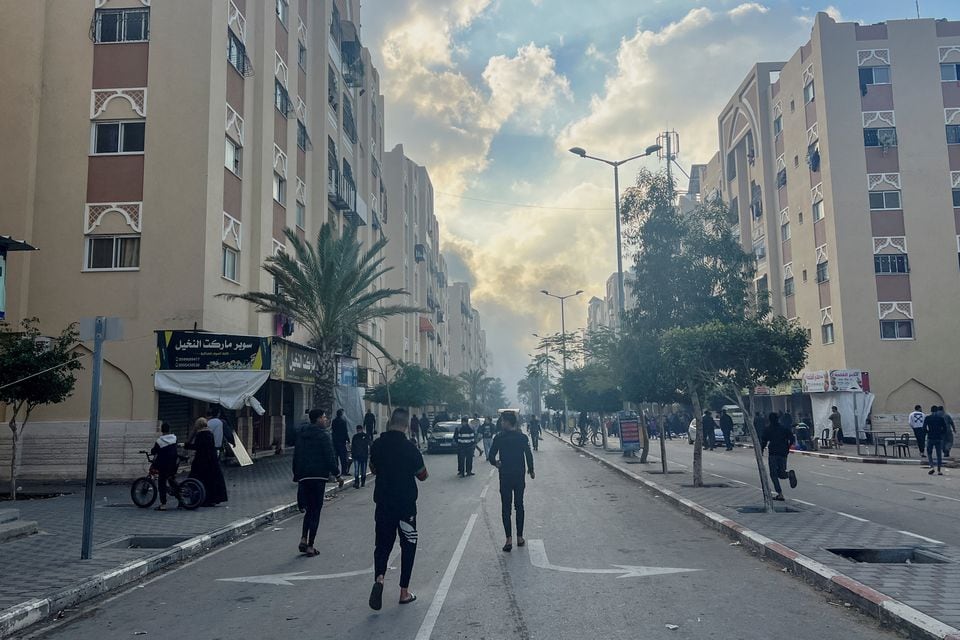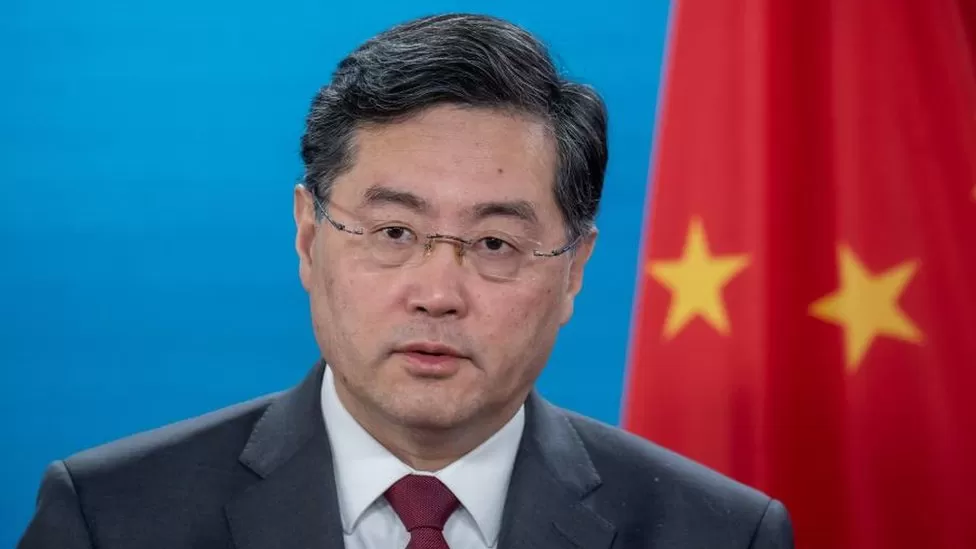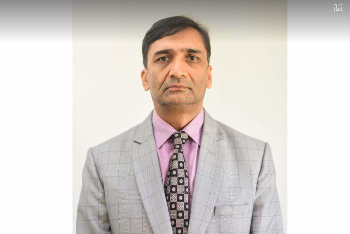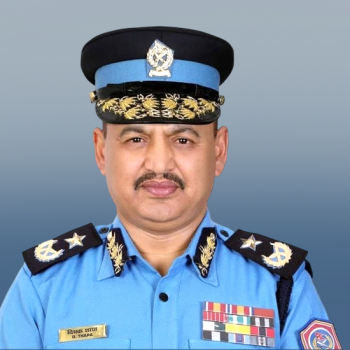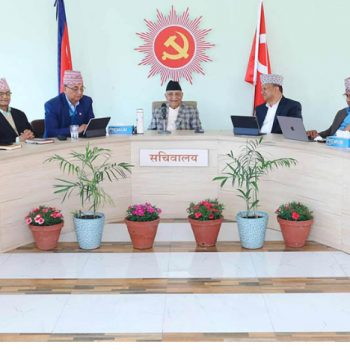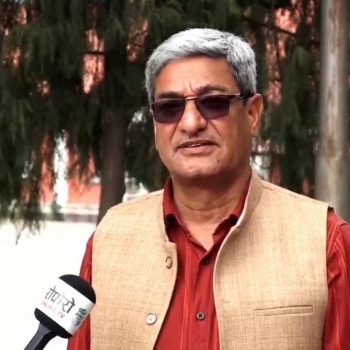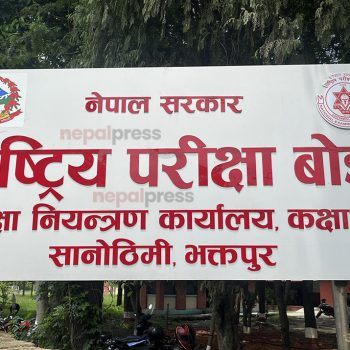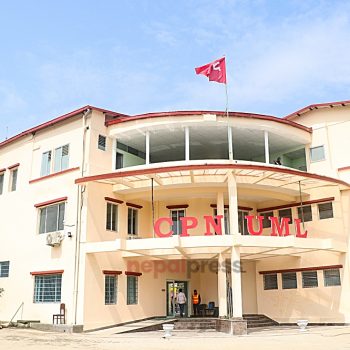Sri Lanka gets new finance minister, cenbank governor as unrest grows
 NepalPress
NepalPress
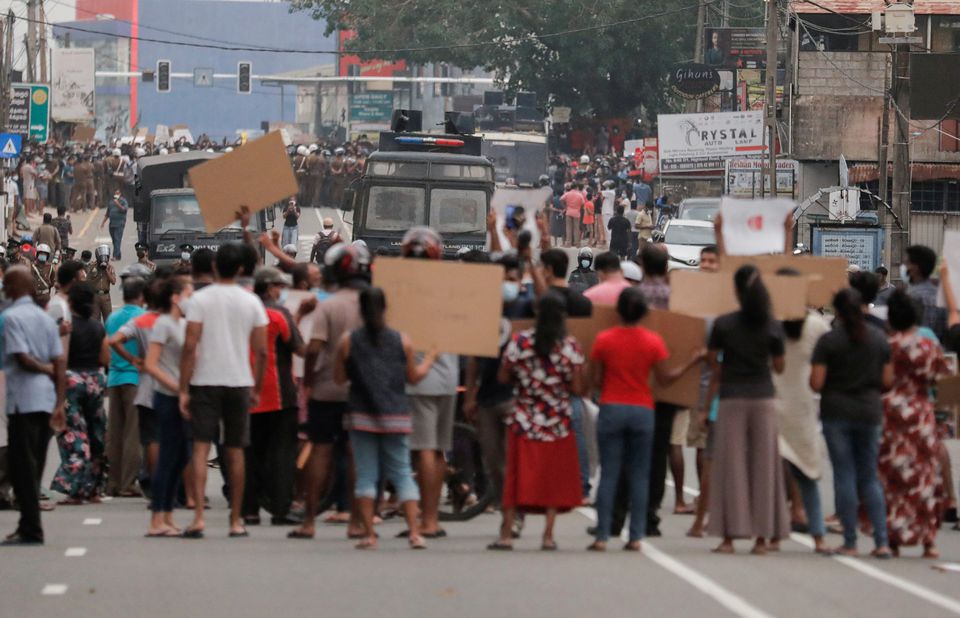
Sri Lankan President Gotabaya Rajapaksa dropped his brother as finance minister and sought a new central bank governor on Monday, as crowds angry over the country’s deepening economic crisis surrounded the homes of several lawmakers, Reuters reported.
The debt-laden country, run by Rajapaksa and members of his family since 2019, is struggling to pay for imports of fuel and other goods due to a scarcity of foreign exchange, leading to hours-long power cuts and a shortage of essentials.
Police used tear gas to disperse hundreds of protesters who gathered outside Prime Minister Mahinda Rajapaksa’s private residence in Tangalle, in southern Sri Lanka. Mahinda, the president’s elder brother, was away at the time in Colombo, the country’s commercial capital, where peaceful protests continued into the night.
“Protesters broke through two barricades that had been placed near the residence and police had to use tear gas to move the protesters away,” police spokesperson Nihal Thalduwa said.
Crowds also gathered outside the homes of six lawmakers and the party office of a former state minister spread across the country, he said.
“Police continue to provide security to the houses of parliamentarians,” Thalduwa said.
After many protesters demanded the total ouster of the Rajapaksas, the president’s media office said in a statement that four new ministers had been appointed “to ensure parliament and other tasks can be conducted in a lawful manner until a full Cabinet can be sworn in.”
The president’s nephew resigned as sports minister in the government that was disbanded while the Central Bank of Sri Lanka (CBSL) governor offered to quit. The CBSL delayed its monetary policy announcement scheduled for Tuesday.
Former CBSL official P. Nandalal Weerasinghe said on Monday that he had accepted an offer from Rajapaksa to become the central bank’s next governor.
“The president called me and made the offer, and I have accepted,” Weerasinghe told Reuters.
The president’s media office said Justice Minister Ali Sabry was named finance minister, replacing Basil Rajapaksa, the president’s younger brother, who was due to visit Washington this month for talks with the International Monetary Fund (IMF) on a loan programme.
Ministers of foreign affairs, education and highways will keep their positions.
“The president invites all political parties representing in the parliament to come together to accept ministerial portfolios in order to find solutions to this national crisis,” the media office said.
Udaya Gammanpila, chief of one of the 11 political parties comprising the ruling coalition, called the new Cabinet “old wine in a new bottle”.
“Our demand is for an all-party interim government to restore essential services and to hold a parliamentary election,” Gammanpila, of the Pivithuru Hela Urumaya party, wrote on Twitter. “People should decide their next leaders, not anybody else.”
Sajith Premadasa, leader of Sri Lanka’s main opposition, rejected Rajapaksa’s offer to form a unity government. “This is a crooked and corrupt government that has brought the people to their knees. The demand of the people is a government like this must go home immediately,” he said in a video statement.
‘THIS GOVERNMENT IS OVER’
The developments come after the president declared a state of emergency on Friday, following street protests in the island nation of 22 million.
The power regulator said daily power cuts would be reduced to 6-1/2 hours for the rest of the week from about seven now, after the Energy Ministry pledged to release 26,000 tonnes of diesel and furnace oil to multiple power plants.
Charmara Nakandala, a protester, dismissed the Cabinet changes as meaningless.
“This cabinet change is to try and fool the people,” Nakandala, a marketing executive, said at a protest in Colombo. “This government is over. Rajapaksas no longer can save this by playing musical chairs.”
Sri Lanka, off India’s southern tip, is also grappling with soaring inflation after the government steeply devalued its currency last month ahead of the IMF talks.
Sri Lanka’s expenditure has exceeded its income under successive governments while its production of tradable goods and services has been inadequate. The twin deficits were badly exposed by the COVID-19 pandemic that crippled tourism, its economic mainstay.




